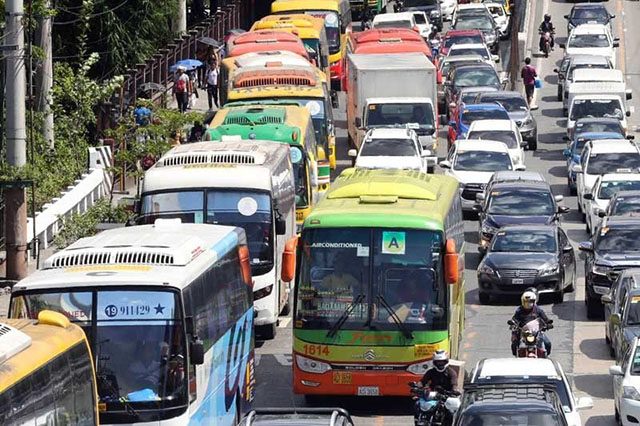The announcement of the government mandating bus companies to provide drivers and conductors a fixed salary was met with enthusiasm by some Filipinos who claimed that it would result in fewer road accidents.
The National Wages and Productivity Commission (NWPC) released guidelines that mentioned the benefits bus drivers and conductors should receive starting March 9, Saturday.
They will be entitled to overtime pay, night shift differential, service incentive leave, 13th-month pay, holiday pay, and premium pay.
Apart from that, they will be entitled to right to security of tenure, right to self-organization and collective bargaining and be given access to social welfare benefits including Social Security System, PhilHealth, and Pag-IBIG.
Bus companies are also required to compensate their drivers and conductors in a rate that is not lower than the minimum wage in their respective regions.
The drivers will also receive performance-based incentives that are based on the company’s revenue, its ridership, safety and the specific conditions of routes, among others.
The initiative has been well-received by most Filipinos who claimed that it would result in more cautious drivers on the road, particularly along EDSA.
Gov’t now require bus companies to provide drivers, conductors fixed salary from Philippines
“Hindi na sila maghahabol ng quota AT mas mag-iingat na rin sila sa pagmamaneho,” Reddit user jooh said.
“Maybe ngayon mababawasan na ang mga kaskasero?” user Crystal_Lily claimed.
“Dati kasi porsyentuhan ‘yung sweldo nila eh. ‘Pag konti pasahero, konti din sweldo nila. Kung may fixed salary na sila, hindi na sila gaanong magiging agresibo sa pagkuha ng mga pasahero,” user Fleaaaa commented.
For a safer commute
Two government agencies previously released an order and a memorandum circular that mandated bus companies to give their drivers and conductors fixed salary.
The Department of Labor and Employment (DOLE) in January 2012 released an order titled “Rules and Regulations Governing the Employment and Working Conditions of Drivers and Conductors in the PUB Transport Industry.”
It required bus drivers and conductors to be paid a fixed salary that is not lower than their respective regions’ minimum wage amount, as well as receive performance-based incentives based on specific conditions.

According to Labor Secretary Silvestre Bello III, it would end the commission-based salary scheme that make drivers compete with each other in picking up passengers.
“When drivers are on a commission basis, they drive recklessly… even when they are sleepy. They get as many passengers, so they can get big commissions. That is dangerous,” he explained.
Bello also shared that it would reduce the accidents on the road, especially in main thoroughfares.
“They (bus operators) should welcome this dahil they have to consider na iyong kanilang driver, konduktor, minsan nagkakaroon ng aksidente dahil kadalasan iyong ating mga driver, kung anu-anong ginagawa para magkaroon ng maraming pasahero para lalaki ang kanilang komisyon. Delikado iyon,” he said.
The Land Transportation Franchising and Regulatory Board (LTFRB) also issued Memorandum Circular 2012-001 that required bus operators to have a Labor Standards Compliance Certificate.
The government agency, similar to DOLE, reasoned that a fixed salary for bus drivers and conductors would result in a safer and more reliable commute for Filipinos.
“We are steering away from the purely commission basis at kailangan part-fixed and part performance-based,” LTFRB Board Member Aileen Lizada said before.
“To the bus operators: You need to give what is due to the drivers. Let us be more compassionate and considerate,” she added, referring to the benefits that their employees would be mandated to receive.
The Metro Manila Development Authority in 2014 reported that 10 bus-related accidents happen in Metro Manila on a daily basis. The most fatal ones occur during the rush hour at noon while those resulting in injuries happen during the morning rush hour.





